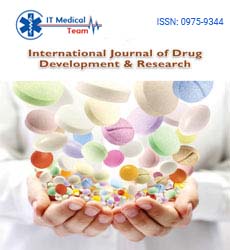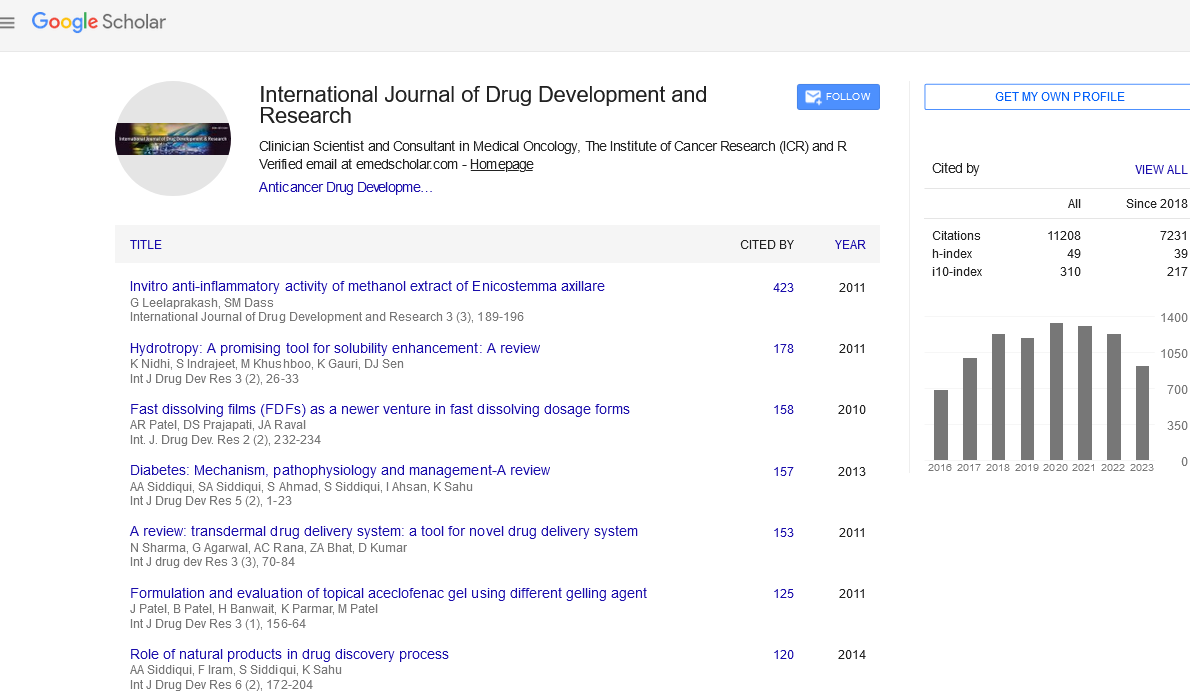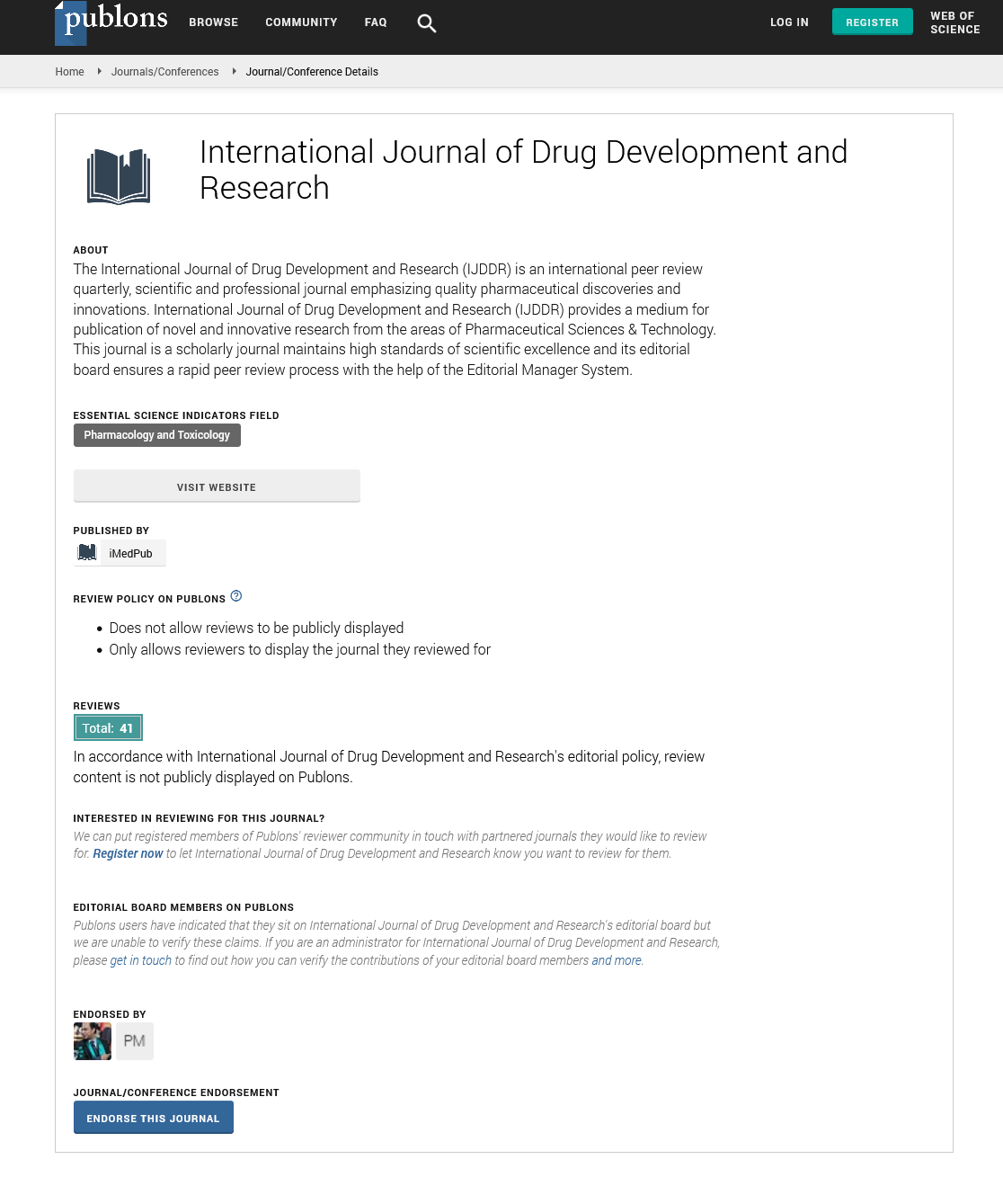Opinion - (2024) Volume 16, Issue 1
Herbal Medicine as a Holistic Approach to ADHD Treatment
Qinr Chan*
Department of Pharmacognosy, University of Buenos Aires, Buenos Aires, Argentina
*Correspondence:
Qinr Chan, Department of Pharmacognosy, University of Buenos Aires, Buenos Aires,
Argentina,
Email:
Received: 04-Jan-2024, Manuscript No. IJDDR-24-14487;
Editor assigned: 08-Jan-2024, Pre QC No. IJDDR-24-14487 (PQ);
Reviewed: 22-Jan-2024, QC No. IJDDR-24-14487;
Revised: 29-Jan-2024, Manuscript No. IJDDR-24-14487 (R);
Published:
06-Feb-2024
Introduction
Attention Deficit Hyperactivity Disorder (ADHD) is a
neurodevelopmental disorder that affects individuals of all ages,
causing difficulties in sustaining attention, impulsivity, and
hyperactivity. While conventional treatments often involve
medications and behavioral therapies, there is a growing interest
in exploring alternative approaches, such as herbal medicine, to
manage ADHD symptoms. In this article, we delve into the world
of herbal remedies, exploring their potential benefits and
shedding light on the holistic approach they offer in treating
ADHD.
Description
Understanding ADHD
ADHD is a complex condition that impacts the cognitive
functions of the brain. Characterized by persistent patterns of
inattention, hyperactivity, and impulsivity, ADHD can significantly
affect an individual's daily life, academic performance, and
interpersonal relationships. While traditional treatments like
stimulant medications (e.g., methylphenidate and amphetamines)
and behavioral therapies have proven effective for many,
concerns about side effects and the desire for more natural
alternatives have sparked interest in herbal medicine.
Herbal remedies for ADHD
Ginkgo biloba: Ginkgo biloba, derived from the leaves of the
ginkgo tree, is renowned for its cognitive enhancing properties.
Rich in antioxidants, Ginkgo biloba has been studied for its
potential in improving attention and memory, making it a
promising candidate for individuals with ADHD. Some believe
that its ability to increase blood flow to the brain may contribute
to better cognitive function.
Bacopa monnieri: Bacopa monnieri, also known as Brahmi,
has a long history in traditional medicine for enhancing cognitive
function. This herb is believed to modulate neurotransmitters in
the brain, potentially improving attention, focus, and memory.
Its adaptogenic properties may also assist in managing stress,
which is often intertwined with ADHD symptoms.
Rhodiola rosea: Rhodiola rosea, an adaptogenic herb, has
gained popularity for its stress-relieving properties. ADHD
individuals often experience heightened stress levels, exacerbating
their symptoms. Rhodiola may help regulate the body's stress
response, promoting a more balanced and focused state of mind.
Pycnogenol: Pycnogenol, derived from the bark of the French
maritime pine tree, is a powerful antioxidant with anti-inflammatory
properties. Some studies suggest that it may
enhance cognitive function and attention by improving blood
flow to the brain. While more research is needed, pycnogenol
shows promise as a natural supplement for managing ADHD
symptoms.
Valerian root: Valerian root, known for its calming effects, is
often used to address sleep-related issues. Since sleep
disturbances are common among individuals with ADHD,
valerian root may play a supportive role in promoting better
sleep quality. Improved sleep can contribute to overall well-being
and may indirectly alleviate some ADHD symptoms.
Holistic approach to treatment
Herbal medicine offers a holistic approach to ADHD
treatment, addressing not only the symptoms but also the
overall well-being of the individual. Unlike some conventional
medications that may have side effects, herbal remedies are
generally considered gentler on the body, with fewer adverse
reactions reported.
It's crucial to note that herbal treatments should not be seen
as standalone cures for ADHD. Instead, they can complement
conventional treatments, providing a more comprehensive and
individualized approach to managing symptoms. Consulting with
a healthcare professional before incorporating herbal remedies
into an ADHD treatment plan is essential to ensure safety and
efficacy.
Potential considerations and caveats
While herbal remedies show promise in ADHD management,
it's important to approach them with caution. The efficacy and
safety of these remedies can vary among individuals, and what
works for one person may not work for another. Additionally, the quality and purity of herbal supplements can differ,
emphasizing the need for reliable sources and reputable brands.
Moreover, herbal treatments should not replace evidence
based interventions such as behavioral therapy or prescribed
medications. Rather, they can be integrated into a broader
treatment plan, with the guidance and supervision of a
healthcare provider.
Conclusion
The exploration of herbal medicine as a complementary
approach to ADHD treatment reflects the growing interest in
holistic and natural alternatives. While conventional treatments
remain the cornerstone of ADHD management, herbal remedies
offer a promising avenue for those seeking a more individualized
and balanced approach to symptom relief.
As research in this field continues to evolve, it is essential to
stay informed and open-minded about the potential benefits
and limitations of herbal medicine in ADHD treatment. With the
guidance of healthcare professionals, individuals can navigate
the realm of herbal remedies to find a personalized and holistic
approach that aligns with their unique needs and preferences.
Citation: Chan Q (2024) Herbal Medicine as a Holistic Approach to ADHD Treatment. Int J Drug Dev Res Vol:16 No:1






